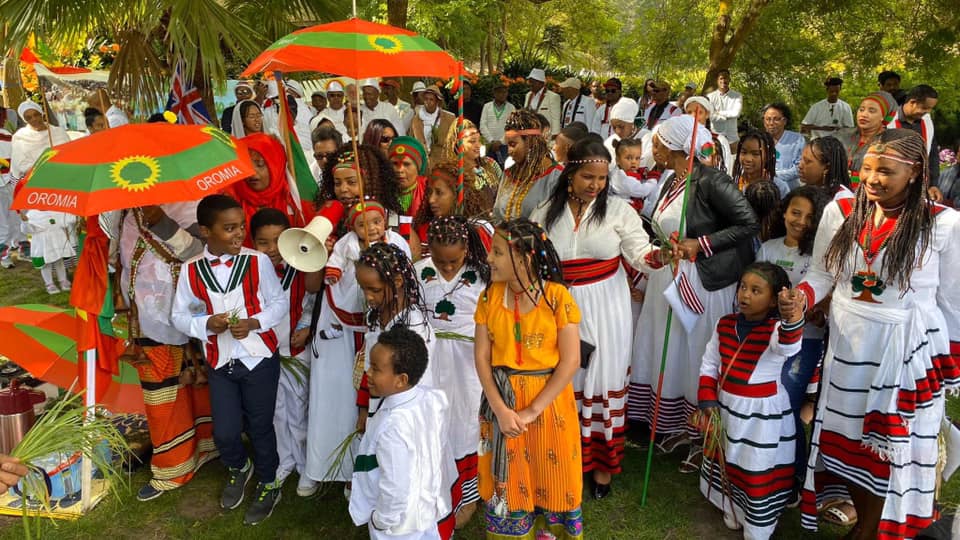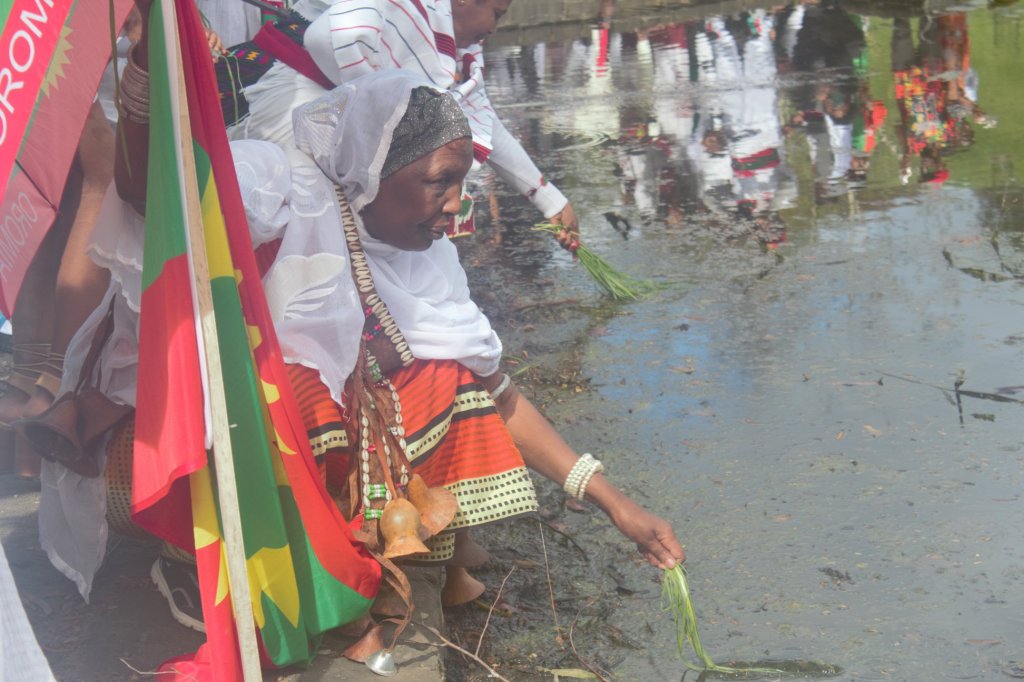Monthly Archives: September 2021
Irreecha Birraa to be held October 3
(Melbourne, Irreechaa, September 30, 2021)-The Oromia Irreechaa Organising Committee in Victoria is preparing to celebrate Irreecha Birraa in Melbourne on 3rd October.
Irreechaa is the annual Oromo people Thanksgiving Day that is celebrated every year in Birraa near the river bank or water and tree.
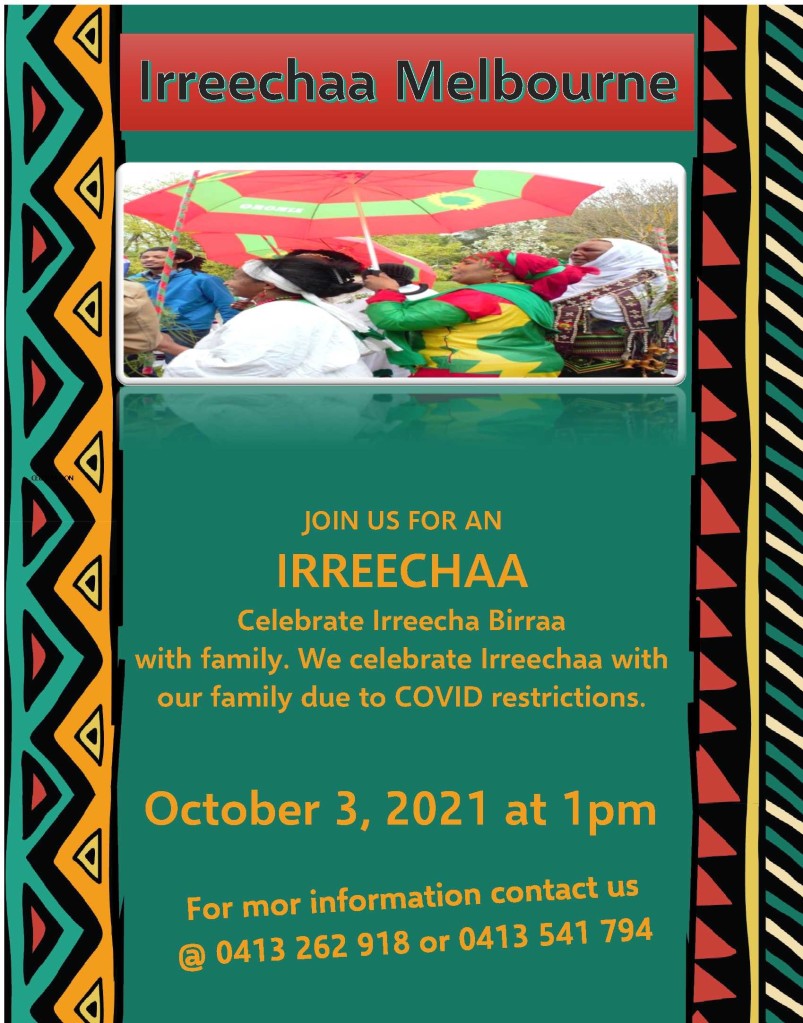
Head of the Committee, Ob Abdeta Homa, said the celebration marks the end of the rainy season (June to September and the beginning of the spring season for planting (September to June).
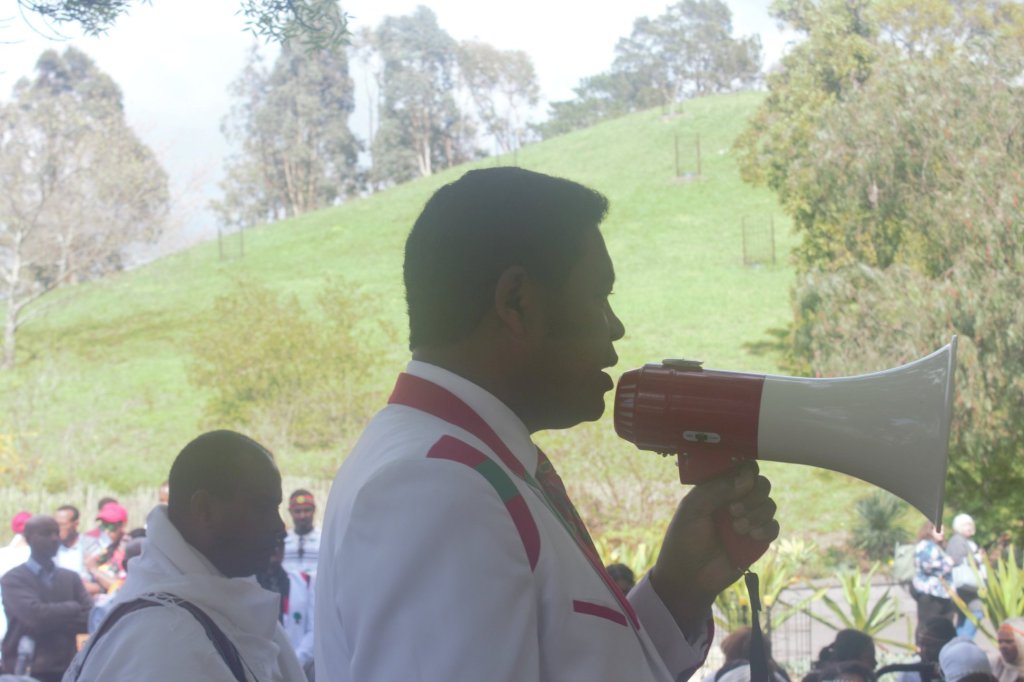
Irreechaa is celebrated every year in the end of September or beginning of October in various part of the globe where the Oromo community resides.
The organisers states that this year celebration in Melbourne will be held in the context of the country at family level due to COVID-19 lockdown while cultural values of the Irreechaa celebration are maintained. The celebration still helps to strengthen and promote the Oromo tradition of respect for nature and gratefulness for life in Melbourne.
Head of Cultural Education Committee, Danye Dafarsha, also said the Irreecha festivity celebrated in Birraa (in September and October) is the cultural expression of thankfulness to Waaqaa for providing life necessities to human beings and other living things.
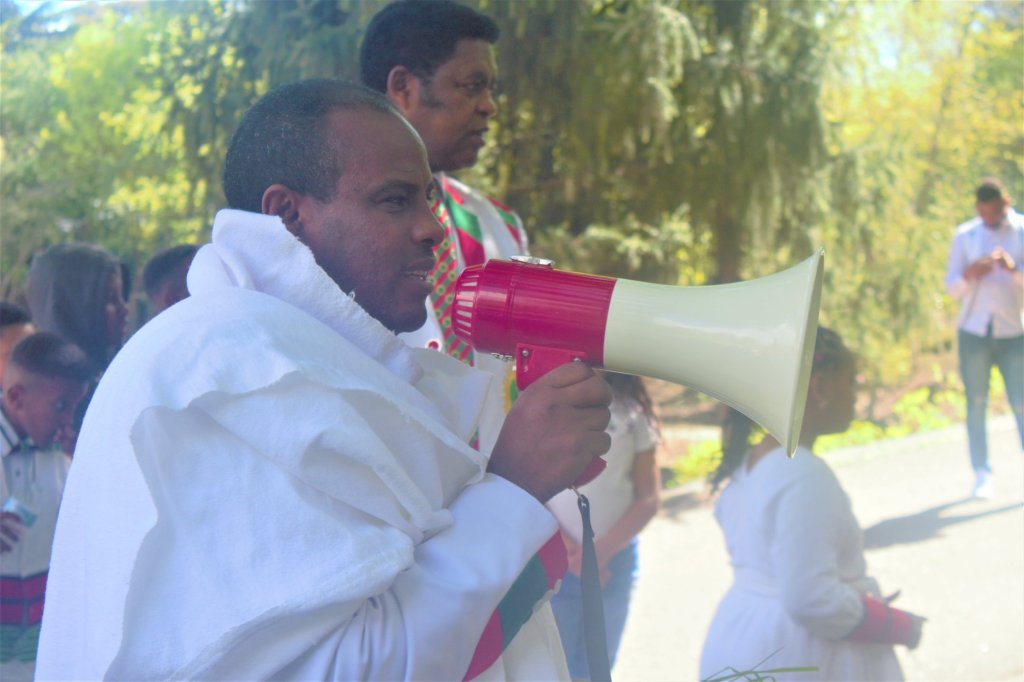
This is because the Oromo believe Waaqaa is the sole creator of everything and source of all life. It is also regarded as pure, omnipresent, infinite, incomprehensible and intolerant to injustice, crime, sin and all falsehood. It can do and undo anything.
On this day, family come to gather at their best place (near the river bank or water) depending on their states lockdown restrictions, to give thanks to the almighty Waaqaa(God) for all the blessings throughout the past dry season and ask for Araaraa (Reconciliation), Nagaa (Peace), Walooma (Harmony) and Finnaa (Holistic Development) for the present and the future.
Australian Oromo formally celebrated this Irreecha every year in Birraa near the river bank or water and tree.
According to the Irreechaa Organising Committee, all Oromos in Victoria are expected to take part in the celebration at the family level.
“What a wonderful time we had on a cooler than typical spring day in 2021 enjoying all that the Irreechaa Festival presented,” Ob Abdeta Homa added.
Accordning to Ob Oluma Qubee, the Oromo elder who has been involved in nurturing Oromo culture for many years, Irreechaa is the celebration of peace, unity and cooperation where the celebrants carrying bunch of straw and daisies in their hands praising, blessing and praying Waaqa in their songs.
“The Oromo people celebrate Irreechaa not only to thank Waaqaa (God) but also to welcome the new season of plentiful harvests after the dark and rainy winter season associated with nature and creature,” Ob Oluma added.
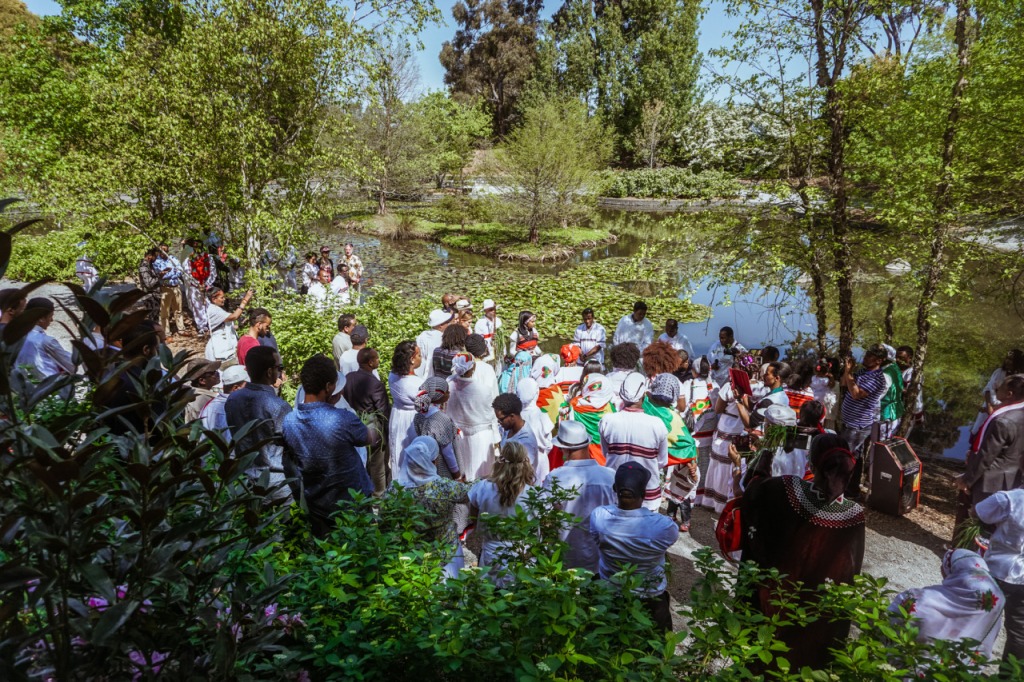
In the traditional religion of the Oromos, the spirit is the power through which Waaqaa (The Almighty God) governs all over the world. Thus, Oromos believe that every creation of Waaqaa has its own spirit.
The ceremony honors elders’ blessings and wisdom, preserves the heritage and assesses the progress of humanity.
“Here in Australia, Melbourne, we continue this fabulous event every year for since 2007.
“The celebrations are unique in that the Melbourne celebration has come again and that contributes to the development of Oromummaa in the Diaspora,” Ob Abdeta said.
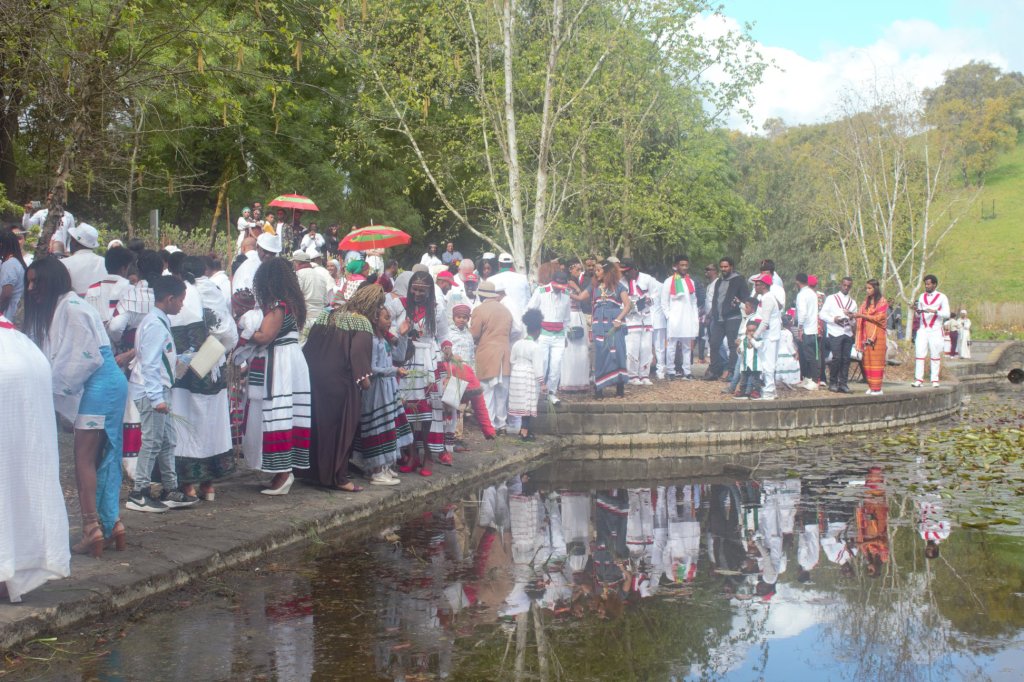
There is also a ceremony of thanking all forebears for their endurance and determination to survive their culture and history – paving the way for further social victory.
In the Oromo tradition river banks, the tops of mountains, the hills and other elevated grounds are respected landscapes because they believe that these landscapes represent the value of life and nature.
It is a unique Oromo cultural, historical and natural beautification in their full glory at the height of the season.
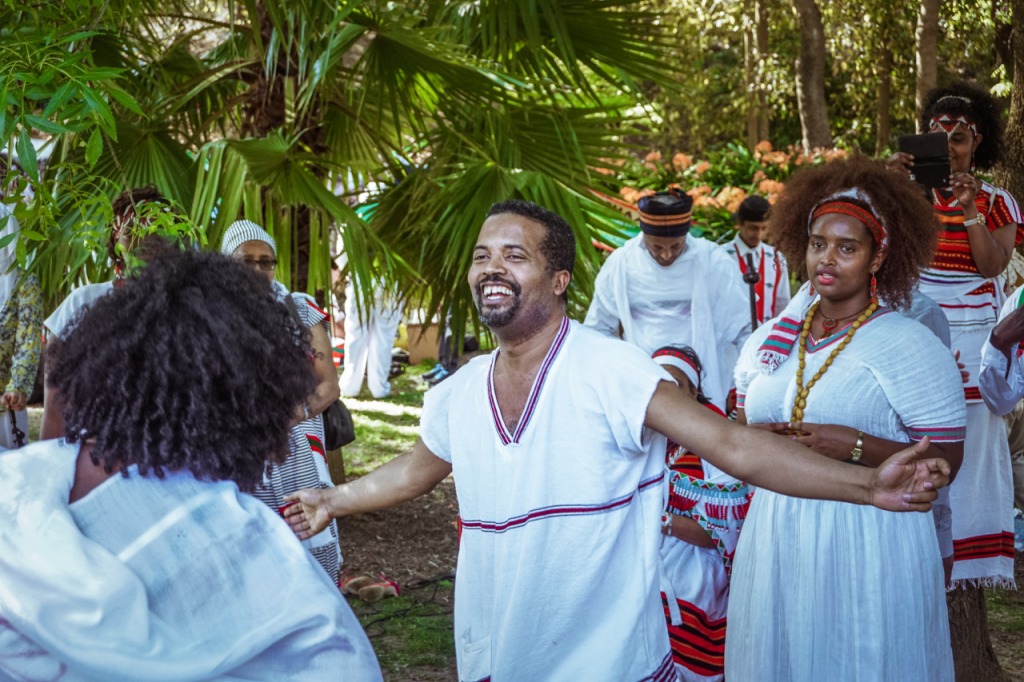
Oromos are celebrating this auspicious event to mark the end of rainy season[1], known as Birraa, was established by Oromo forefathers, in the time of Gadaa Melbaa[2] in Mormor, Oromia.
The auspicious day on which this last Mormor[3] Day of Gadaa Belbaa[4]-the Dark Time of starvation and hunger- was established on the 1st Sunday of last week of September or the 1stSunday of the 1st week of October according to the Gadaa lunar calendar ‐‐ has been designated as our National Thanksgiving Day by modern‐day Oromo people. Oromo communities both at home and abroad celebrate this National Thanksgiving Day every year.
Irreechaa as a medium for bringing all Oromias together
The Oromian Irreechaa Festival will not only serve as a medium for bringing all Oromias together, from all its diasporas, as one voice, but will also focus on promoting and enhancing Oromummaa in freedom struggle, tourism, arts and crafts, business, restaurants and hospitality, and entertainment.
Moreover as a moving and flourishing heritage, Irreechaa also connects our Oromo identity with the global civilization in which the industrial and manufacturing sectors of heavy and light machinery of natural resources and raw materials.
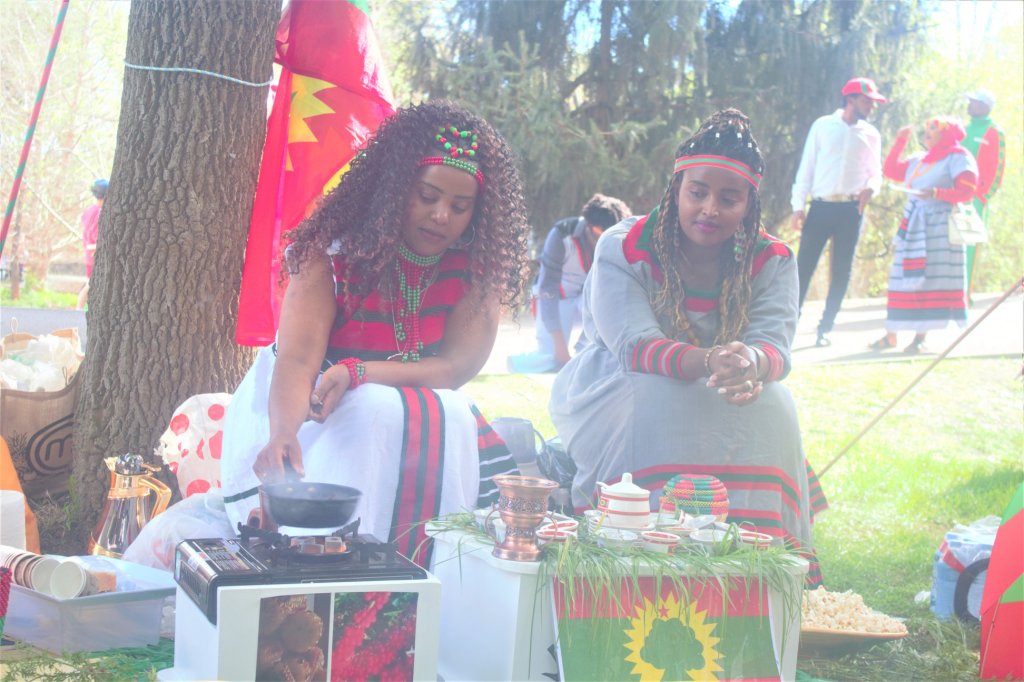
During the event, we will be serving with Oromo foods and featuring with traditional dances by Oromo children, youth and dance troupes. Irreechaa is about a lot more than just putting on shows, it encourages engagement and participation from everyone in the greater community across our great city, country and the globe.
On Irreechaa festivals, friends, family, and relatives gather together and celebrate with joy and happiness. Irreechaa festivals bring people closer to each other and make social bonds.
Irreecha is one of the previous Cushitic religious traditions of praying to God (Waaqa). It has been observed by the Oromo people for more than 6400 years.
[1] Rainy season symbolized as a dark, disunity and challenging time in Oromia.
[2] Gadaa Melbaa was established before 6400 years ago at Odaa Mormor, North-west Oromia.
[3] Mormor in Oromo means division, disunity, chaos.
[4] Gadaa Belbaa is the end time of starvation.
